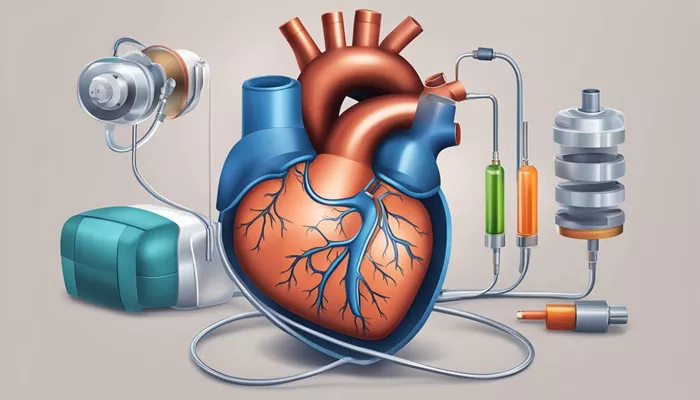Hypertrophic cardiomyopathy (HCM) is a genetic heart condition characterized by the thickening of the heart muscle, which can obstruct blood flow and lead to various complications. Managing HCM effectively involves making specific lifestyle changes, including avoiding certain activities and substances that could exacerbate the condition. This article explores what individuals with HCM should avoid to maintain their heart health and improve their quality of life.
Understanding Hypertrophic Cardiomyopathy
Hypertrophic cardiomyopathy affects approximately 1 in 500 people and is often inherited. The condition can be asymptomatic or may present symptoms such as shortness of breath, chest pain, or palpitations. In severe cases, it can lead to serious complications, including heart failure or sudden cardiac death, particularly during intense physical exertion.
Symptoms of HCM
Common symptoms of HCM include:
Shortness of breath: Often experienced during physical activity.
Chest pain: Can occur during exertion or even at rest.
Palpitations: Irregular heartbeats that may feel like fluttering or pounding.
Dizziness or fainting: Especially during exercise.
Recognizing these symptoms is crucial for individuals with HCM, as they can indicate worsening of the condition.
Lifestyle Changes for Managing HCM
To manage hypertrophic cardiomyopathy effectively, patients should focus on lifestyle changes that promote heart health.
Here are key areas to consider:
1. Avoiding Intense Physical Activity
Physical activity is essential for overall health, but individuals with HCM must be cautious about the intensity of their workouts. High-intensity exercises, such as sprinting, heavy weightlifting, or competitive sports, can increase the risk of arrhythmias and other complications.
Recommended Activities:
Low to moderate-intensity exercises such as walking, yoga, and tai chi are generally safe and beneficial.
Consult with a healthcare provider before starting any exercise regimen to tailor it according to individual health status.
2. Limiting Alcohol Consumption
Alcohol can worsen symptoms of HCM by increasing heart muscle obstruction and promoting weight gain. It is advisable for individuals with HCM to limit or completely avoid alcohol intake.
Guidelines for Alcohol:
If you choose to drink, limit consumption to one drink per day for women and two drinks per day for men.
Discuss with your doctor whether it’s safe for you to consume alcohol at all.
3. Quitting Smoking
Smoking significantly increases the risk of cardiovascular diseases and can exacerbate HCM symptoms. Nicotine raises blood pressure and heart rate, while carbon monoxide reduces oxygen supply to the heart.
Benefits of Quitting:
Reduces the risk of coronary artery disease.
Improves overall cardiovascular health.
Enhances the effectiveness of other lifestyle changes aimed at managing HCM.
4. Managing Stress
Chronic stress can elevate blood pressure and worsen heart conditions. It’s essential for individuals with HCM to implement stress management techniques into their daily routine.
Stress Management Techniques:
Practice relaxation techniques such as deep breathing exercises, meditation, or gentle yoga.
Ensure adequate sleep each night; aim for at least 7 hours of quality sleep.
Engage in hobbies or activities that promote relaxation and enjoyment.
5. Maintaining a Heart-Healthy Diet
Diet plays a crucial role in managing hypertrophic cardiomyopathy. A heart-healthy diet helps control weight and reduces strain on the heart.
Dietary Recommendations:
Focus on a diet rich in fruits, vegetables, whole grains, lean proteins (such as fish and poultry), and healthy fats (like those found in nuts and olive oil).
Limit intake of sodium, sugar, saturated fats, and trans fats.
Consider following dietary patterns like the Mediterranean diet or DASH (Dietary Approaches to Stop Hypertension) diet.
6. Monitoring Blood Pressure
High blood pressure can exacerbate symptoms of HCM. Regular monitoring is essential to ensure blood pressure remains within a healthy range.
Tips for Blood Pressure Management:
Use a home blood pressure monitor as recommended by your healthcare provider.
Take prescribed medications as directed.
Report any unusual readings or symptoms to your doctor promptly.
7. Avoiding Dehydration
Dehydration can lead to increased heart rate and strain on the cardiovascular system. It’s important for individuals with HCM to stay well-hydrated.
Hydration Tips:
Drink plenty of fluids throughout the day.
Avoid excessive caffeine or alcohol consumption, which can lead to dehydration.
Conclusion
Living with hypertrophic cardiomyopathy requires careful management and lifestyle adjustments. By avoiding high-intensity exercise, limiting alcohol intake, quitting smoking, managing stress effectively, maintaining a heart-healthy diet, monitoring blood pressure regularly, and ensuring proper hydration, individuals with HCM can significantly improve their quality of life and reduce the risk of complications.
It is essential for patients with hypertrophic cardiomyopathy to work closely with their healthcare providers to develop a personalized management plan that addresses their unique needs and circumstances. Regular check-ups and open communication about any changes in symptoms are vital components of effective disease management.
Related topics:


